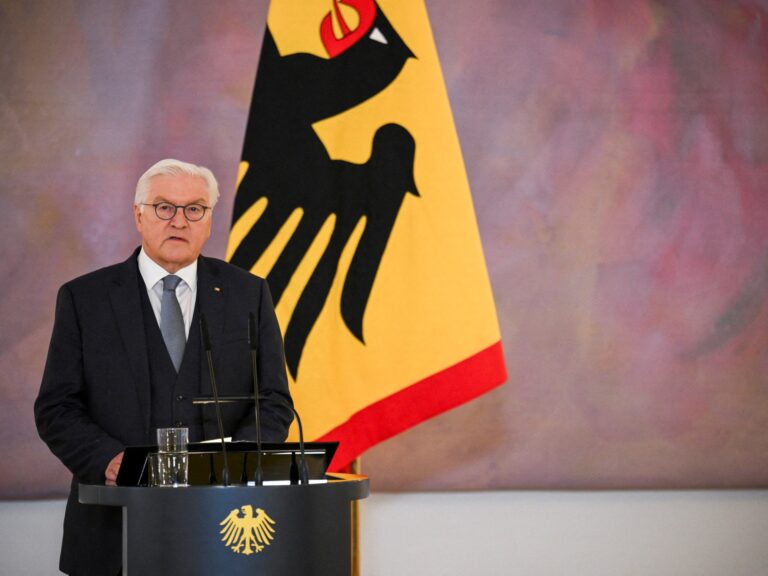Prime Minister Olaf Scholz, who was rejected in a vote of confidence this month, will serve as interim prime minister amid mounting turmoil.
German President Frank-Walter Steinmeier has dissolved parliament and confirmed that a snap election will be held on February 23, following the recent collapse of Chancellor Olaf Scholz’s government.
Speaking at Berlin’s Bellevue Palace on Friday, Chancellor Steinmeier said that maintaining stability in “tough times” requires an “actionable government” and a “credible majority in parliament.”
Scholz, a member of the Social Democratic Party, was rejected in a vote of confidence in parliament earlier this month after Finance Minister Christian Lindner resigned from an unwieldy coalition government that lacked a parliamentary majority.
He will remain interim prime minister until a new government is formed, as the country is reeling from a deadly car attack at a Christmas market last week and reignited heated debates over security and immigration. It’s planned.
Taleb al-Abdelmose is a 50-year-old psychiatrist from Saudi Arabia who has lived in Germany for nearly 20 years and is a supporter of the increasingly popular far-right party Alternative for Germany (AfD). and promoted Islamophobic views. .
“Hate and violence” are not allowed
The president, whose post was largely ceremonial after the war, specifically mentioned billionaire Elon Musk’s social media platform X, warning of “foreign influence” and ensuring that his campaign was fair and fair. He called for it to be implemented transparently.
“There must be no hatred, no violence, no slander and intimidation in this campaign, all of which are poison to democracy,” Steinmeier said.
He also reminded political parties and voters of the challenges the next government will face, given the “economic instability” and “wars in the Middle East and Ukraine,” as well as debates over immigration and climate change. I let it happen.
In his speech, Steinmeier emphasized that problem-solving must once again be at the heart of politics.
Opinion polls predict Scholz will be replaced by conservative challenger Friedrich Merz, who says the current government has stifled growth through overregulation.
According to opinion polls, conservatives have a lead of more than 10 points over Scholz’s Social Democratic Party (SPD).
Mainstream parties reject rule by the AfD, which has a slight lead over the SPD in opinion polls, but its presence complicates parliamentary calculations and increases the likelihood of an unstable coalition government.


